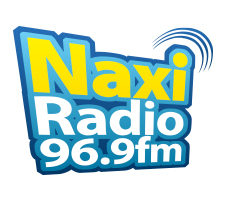Interview
His Excellency Victor Nedopas, Ambassador of Ukraine to the Republic of Serbia
Ukraine is a country in the east of Europe. It has an area of 603,628 km² making it the largest country on the European continent. In Soviet times, the economy of Ukraine was the second largest in the Soviet Union, being an important industrial and agricultural component of the country’s planned economy. Today, Ukraine has a very large heavy-industry base and is one of the largest refiners of metallurgical products in Eastern Europe. However, the country is also well known for its production of high-technological goods and transport products, such as Antonov aircraft and various private and commercial vehicles. Ukraine is a destination on the crossroads between central and eastern Europe, between north and south. It borders Russia and is not far from Turkey. It has mountain ranges - the Carpathian Mountains suitable for skiing, hiking, fishing and hunting. Kiev, the country’s capital city has many unique structures such as Saint Sophia Cathedral and broad boulevards. There are other cities well-known to tourists such as the harbour town Odessa and the old city of Lviv in the west. Music is a major part of Ukrainian culture, with a long history and many influences. From traditional folk music, to classical and modern rock, Ukraine has produced a long list of internationally recognized musical talent including Tchaikovsky and Okean Elzy. The traditional Ukrainian diet includes chicken, pork, beef, fish and mushrooms. Ukrainians also tend to eat a lot of potatoes, grains, fresh and pickled vegetables.

Victor Nedopas
Your Excellency, how do you feel in Belgrade?
Similar traditions, language, mentality, even the landscape of Serbia make me feel here at home. I am especially fascinated by Serbian hospitality, readiness for help and openness to foreigners - all that is covered by words “Slavic spirit” which in Serbian language has even deeper meaning in the words “Slovenska dusa”.
How long have you been in Belgrade as Ambassador of Ukraine and what did your diplomatic career look like before coming to Serbia?
I came to Serbia in September 2009. Before that I was posted in Ukrainian embassies in Iraq and the USA, working in the OSCE mission in Georgia. At the foreign ministry I dealt mainly with international security issues, disarmament, and NATO.
I consider my current posting to Serbia as a good opportunity to get acquainted with the Balkans where interesting things happen every day, so my work here is never boring.
Ukraine and Serbia have traditionally good political and diplomatic relations. What does the current situation in that field look like?
The Ukrainian-Serbian relations are those of friendship, fruitful cooperation, and mutual partnership based on the historical, ethnic, cultural and religious similarity of our Slavic nations. We have no problems in our bilateral relations but only similar challenges.
The last year was very successful in terms of deepening cooperation between our two states in different spheres of bilateral relations.
In particular, we had a very effective and fruitful political dialogue on parliamentary level. In particular, on 5 July, 2010 Dr. Slavica Djukic-Dejanovic, the Head of National Assembly of Serbia visited Ukraine. That was the first visit of such a level in the history of Ukrainian-Serbian relations.
We continued also bilateral contacts at multilateral meetings and conferences, in particular at the Munich conference (4-5 February, 2011) where the Ministers of Foreign Affairs of Ukraine and Serbia held a separate meeting.
Certainly, we are working on organizing the visit on the highest level that would give a strong impetus for enhancing our cooperation in all spheres.
Ukraine is among those countries that did not recognize unilaterally proclaimed independent Kosovo and Metohija. What stand did Ukraine take to that region and will it change?
Ukrainian position on Kosovo case was clearly pointed out by President of Ukraine Victor Yanukovych. He said that Ukraine did not and does not plan to recognize the unilaterally proclaimed independence of Kosovo. Ukraine would like to see this problem resolved in accordance with the norms of international law and Security Council resolution 1244.
As you know, Ukraine continues to make its contribution to peacekeeping in the Balkans and Ukrainian contingent performs its tasks as a part of international peacekeeping contingent in Kosovo regions with the majority of Serbian population. Ukrainian armed forces has been performing the peacekeeping tasks in terms of KFOR since 1 September, 1999 and now we have there 124 soldiers as a part of multinational group “East”.
Ukraine is a significant trading partner of Serbia, but in the last two years economic exchange between our countries has significantly declined. Is it due to world economic crisis or something else, and what do our countries do to make this situation better?
Analyses of Ukrainian-Serbian trade cooperation during 2010 shows gradually recovering of trade to the pre-crisis level. According to the official statistics the volume of bilateral trade in 2010 amounted about 300 million US dollars. That puts Ukraine into the top twenty economic partners of Serbia.
Certainly, enhancing the bilateral trade and economic cooperation remains one of the top priorities for both Ukraine and Serbia.
In this context the rejuvenation of our joint Intergovernmental Commission on Trade and Economic, Scientific and Technical Cooperation after seven-year break can influence further development of our bilateral trade relations. Now both sides work thoroughly to implement the agreements recorded in the Protocol of the third session of the Commission which took place in Belgrade in November, 2010.
To what extent are Ukrainian investors interested in investing in Serbia, and to what extent are Serbian companies ready to invest in Ukrainian economy? How do you present Serbia to prosperous investors from Ukraine?
Ukrainian companies are interested in participation in the projects of development oil and gas transporting systems on the territory of Serbia, creation of modern infrastructure of the Pan-European transport corridor number 10. In this regard Embassy of Ukraine in Belgrade tries to find and help Serbian firms to find possible partners in Ukraine and interesting projects for investing.
Speaking about the opportunities of investing in Ukraine, our country is now carrying out numerous projects on developing transport, sport and tourist infrastructure in Kyiv, Kharkiv, Donetsk and Lviv within the framework of preparation for Euro-2012 in Ukraine. Possible participation of Serbian companies in these projects would additionally help to establish contacts between the Ukrainian and Serbian business and to create the favorable conditions for implementation of new forms of cooperation.
How numerous is the Ukrainian diaspora in Serbia? Are you satisfied with its position, and how does Serbian diaspora function in Ukraine?
About twenty-one thousand of Ukrainian-Rusin minority people live on the territory of Serbia, mainly in Autonomous Region of Vojvodina, in Novi Sad, Vrbas, Kula, Ruski Krstur, Kucura, Djurdjevo. They are very active not only in cultural but also in political life of Serbia that helps them to represent their rights and interests in Serbian society. About 30 cultural groups and communities, Ukrainian and Rusin language studies in 65 primary and 21 secondary schools, publishing of regular weekly and monthly newspapers, active work of Rusin edition in RTV are the best illustrations to this statement.
As far as I know they are quite satisfied with the opportunities, provided by the Serbian legislation, to cultivate and develop their own culture and traditions. I cannot but mention the positive effect of implementation of the new Serbian law on the national minority councils adopted in 2009.
What are the prospects for abolition of visa regime between Serbia and Ukraine?
Signing a new intergovernmental visa liberalization agreement that envisages visa-free regime for short-term visits of our citizens is one of the main topics of agenda of our bilateral cooperation. During the consultations between the Ministries of Foreign Affairs of Ukraine and Serbia in November 2010 the sides agreed upon the main provisions of this agreement and now the draft is under the internal endorsement procedures. So I hope that this very important document for our citizens would be signed in the nearest future.
What is the level of cultural cooperation between our two countries?
Cultural cooperation between Ukraine and Serbia is carried out on the basis of the intergovernmental agreement of 1997 on cooperation in the spheres of education, culture and sport. Every year the representatives from Ukraine participate almost in every international festival or competition held in Serbia and vice versa. One of the most remarkable events in our cultural cooperation were the Days of Serbian Culture in Ukraine on 5-10 April, 2009 which took place in different cities of Ukraine and left the most positive memories.
An important part of our cultural relations is joint celebration of important dates in the history of both states. This year Ukraine celebrates the 20th anniversary of its independence, the 15th anniversary of adoption of the Constitution of Ukraine and the 1000th anniversary of Sofiivska Cathedral – great Ukrainian religious monument, and we plan numerous manifestations to be held in Serbia on these occasions.
How would you present Ukraine as a tourist destination?
Ukraine has a great tourist potential and is already a well known tourist destination in the world and in Serbia in particular. Here you have different types of tourism: historical tours, fortresses tours, mountain tourism, sea vacations, green and health tourism.
Crimea offers a well-developed tourist infrastructure for spending vacations on the seaside near the Crimea Mountains and interesting historical places. If you want to spend winter in Ukraine I advise you to go skiing or snow-hiking Carpathian Mountains. For those preferring active tourism Ukrainian tourist companies will offer different historical and natural routes in the western part of the country.
The religious tourism is also very popular in Ukraine, bearing in mind that Ukrainian churches take their roots from the 10th century. I will advise you to visit Kyiv to see famous Kyivo-Pecherska Lavra, Sofiivska cathedral, Saint Andrew church.
So, Ukraine offers a wide range of tourist sightseeings that will satisfy the most fastidious wishes of the travellers.
How should Serbia be presented to Ukrainians as an interesting tourist destination?
Traveling around Serbia I understood that it has a very good health and town tourism that may be interesting for Ukrainians. I think that a new tourist rout, planned by the Serbian government, “Serbian fortresses from Danube” can be quite attractive for foreign tourists because of good combination of river tourism and historical sites.
For Ukrainian citizens I would also advise to visit national park Djerdap and a special archeological rout “By steps of Rome emperors”. And, of course, ski resorts Kopaonik and Zlatibor can be certainly attractive options for Ukrainian ski-lovers.
Could you compare Serbian and Ukrainian mentality, lifestyle, cuisine and language?
We have very few dissimilarities in culture and mentality, maybe because of huge influence of Turkish traditions on Serbian way of life. Language is something that also makes us feel very close. I can assure you that Ukrainians will understand about 60% of what you say to them in Serbian. It is also the result of common Slavic history, Slavic group of languages and Slavic way of life which includes joy in everyday, openness and readiness to help.
What would you change in Serbia, if you could?
To my mind, one can only pose this question to Serbian people. But I will do my best to change one thing in Serbia – it is the opinion of Serbian people about Ukraine. I want all Serbs to perceive Ukraine as an independent state with its own traditions, policy and behavior in the international scene, and not only as a former part of the Soviet Union.
What will you take with you when you leave Serbia?
Unfortunately, I cannot take Serbian cuisine with me though I like it very much, but I will certainly take some Serbian rakija as a thing that will always remind me about Serbian spirit and mentality.














